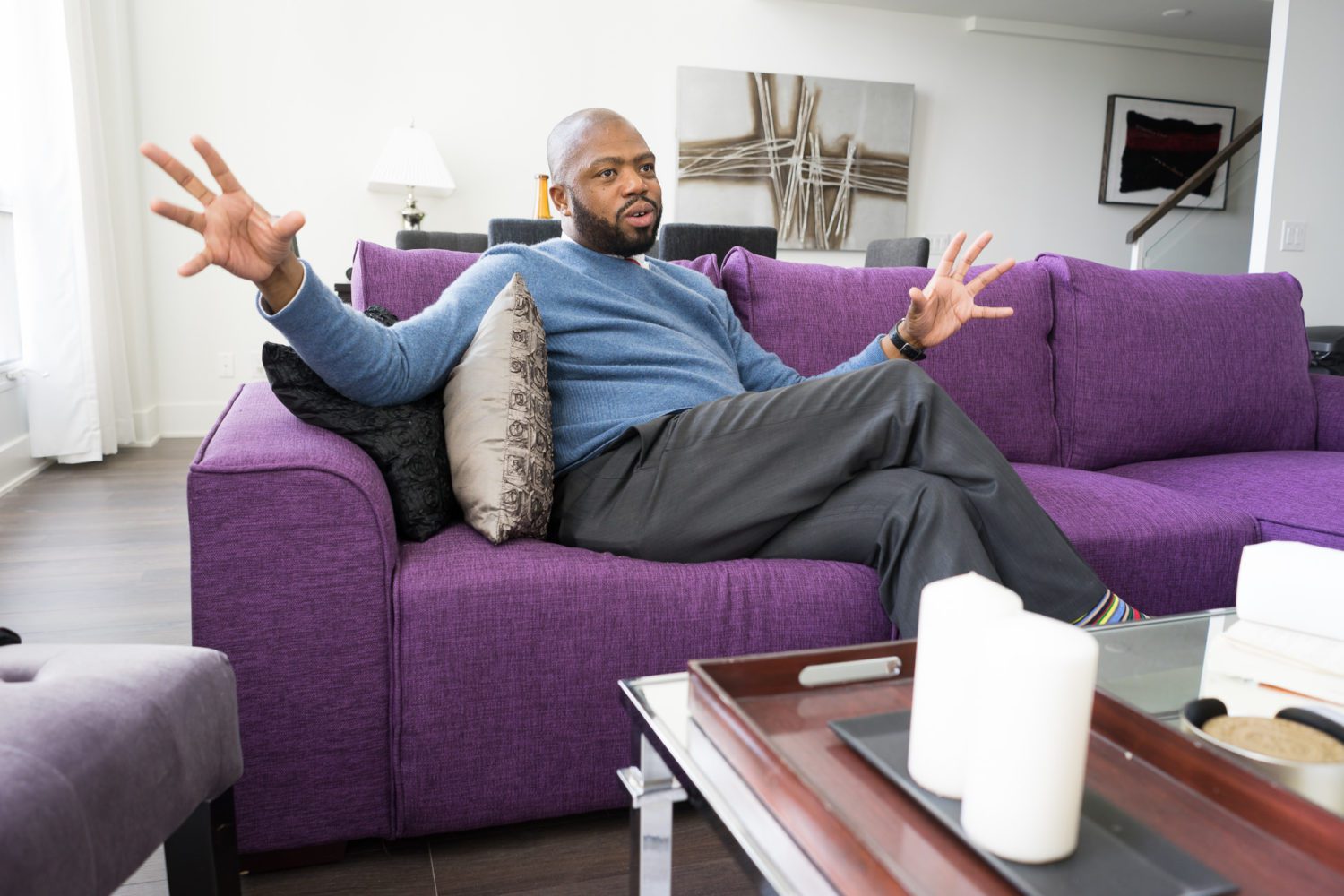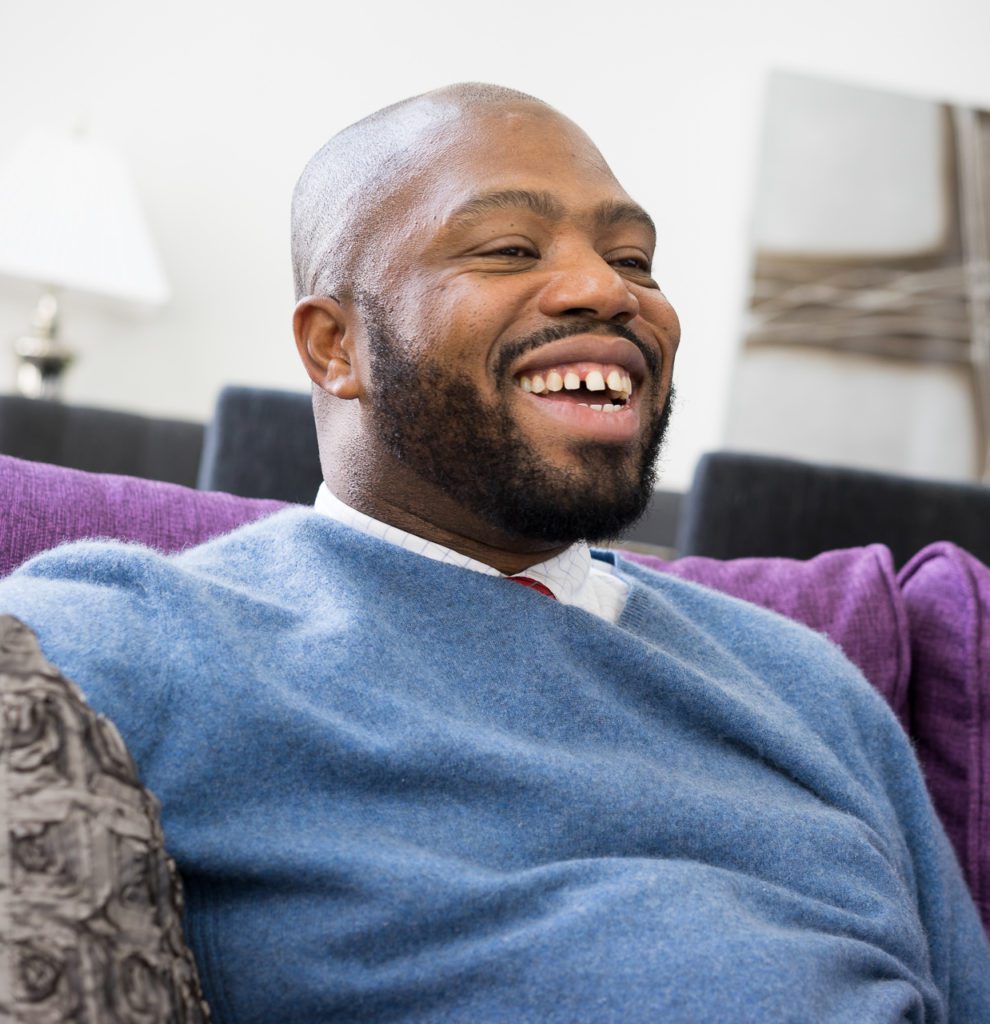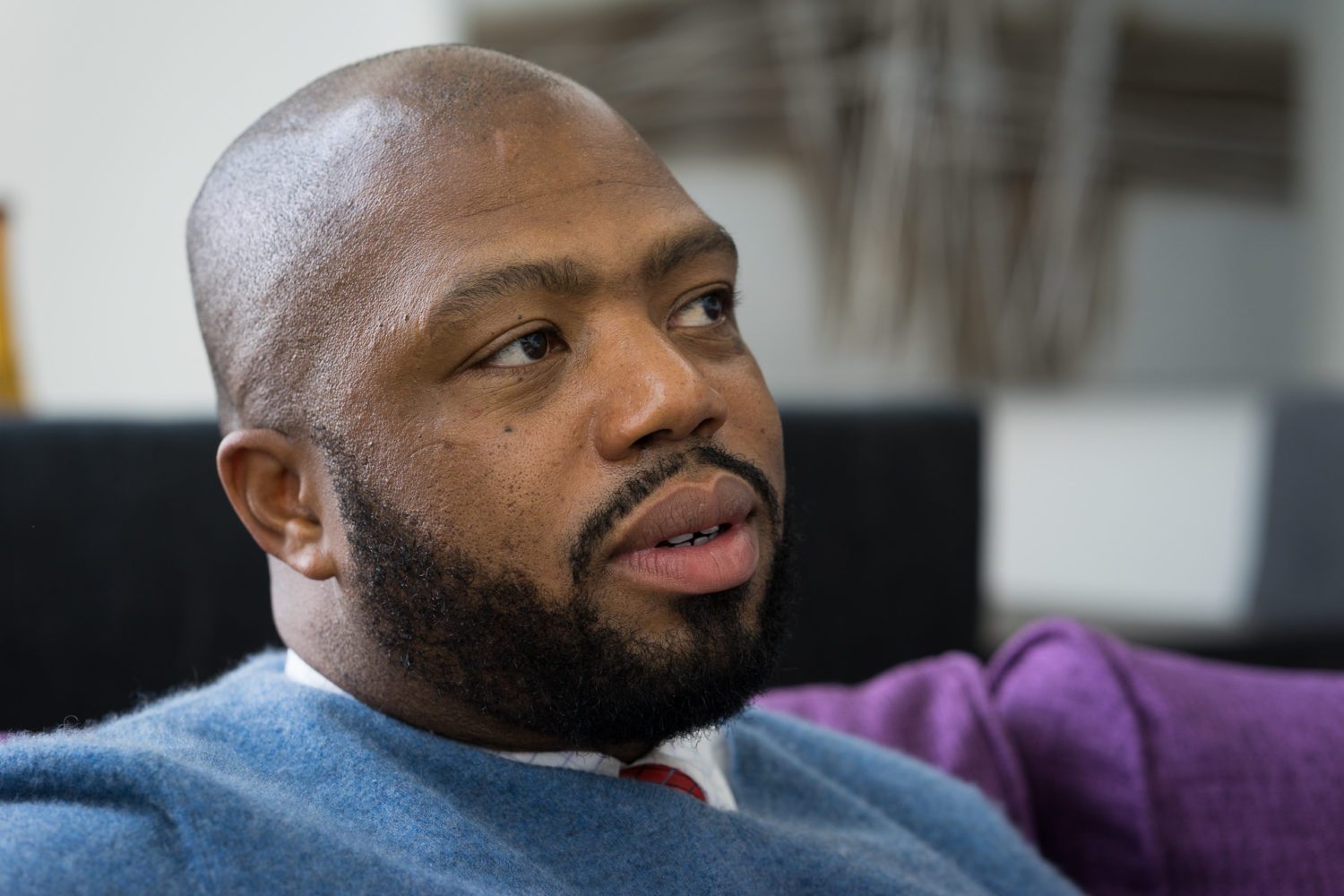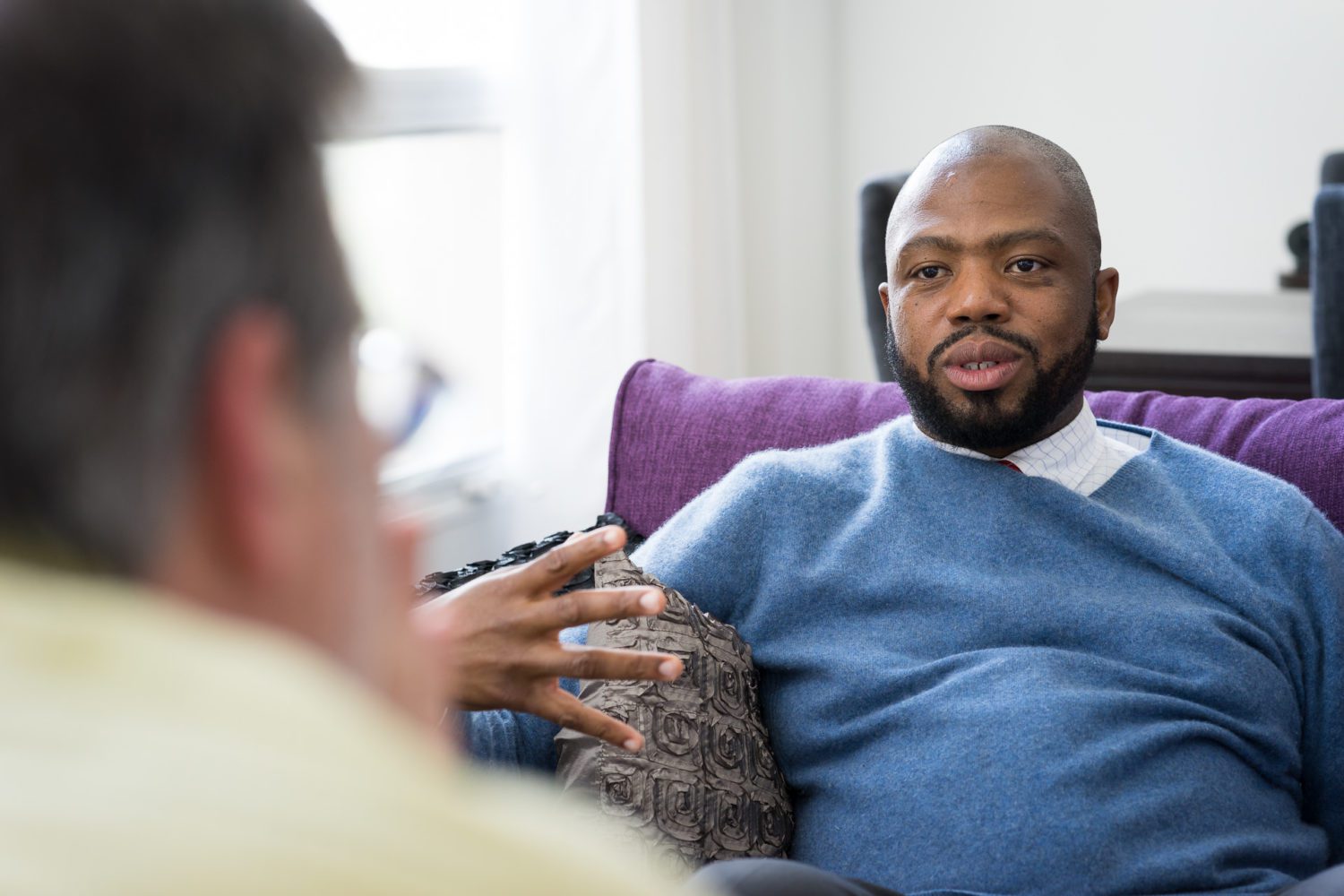LaRon is a public health nurse practitioner and researcher working in Canada, the United States and Africa.
“I am from Savannah, Georgia, one of those places where there were very particular expectations for what black boys did after high school, and the military was one of them. My commanding officer suggested I should go to college. I had to take a special test in order for the navy to pay for my tuition. The test listed particular occupations that I would be good at, and nursing and law were first on the list. Because you had to go to graduate school to get a law degree, the military wouldn’t pay for that. So my only option was nursing. I had no interest in it, but here was my opportunity.”
How did you get into public health nursing?
“When I was an undergraduate I didn’t have a lot of money, so I lived in a very rough, low-income neighbourhood. It was very different from the type of neighbourhood I grew up in and I found it fascinating. I would look out my window at night and see things that I had never seen before. People behaved in ways that were bizarre to me. I don’t think I’d ever met somebody who was high on drugs before.”
“It just grabbed me and didn’t let go. The stuff I was seeing at the hospital was not interesting to me. I really wanted to be out in the street working with people. Because when people were sick or struggling with their addiction they almost never went to the hospital, they always went to community clinics. I wanted to be there.”

Tell me about an experience that was important in your development as a public health nurse.
“The clinic was organized so the nurses could do the intake and assessments, but if there was something more complex – like a pelvic exam – a nurse practitioner needed to see them. I was seeing a transgender woman and I went out of the room to get something. I was the only nurse practitioner in clinic and a nurse asked if I could see a complex patient who had been waiting for a while, and she would finish seeing the transgender woman. So, I did that.”
“All of a sudden I hear this commotion. The transgender woman was very upset that I had abandoned her. I had done the assessment, she had disclosed these things to me, I left the room and all of sudden someone else comes in.”
“It was a really bad scene. I was upset because I felt totally misunderstood and misrepresented. But it also made me think about that person’s experience. I should have known that there was a better way to transition, given the stigma that folks in this community face. I should have said that something had come up, I needed to see another patient and somebody else would come in and see her. Very simple; a 30 second transition.”
“I always felt like you just need to be nice to everybody and things will be okay. But that experience taught me that there are particular nuances of people’s life experiences that we can’t ignore. I realized I had failed, even though I didn’t do anything sinister.”
“She left and didn’t get the care that she came for, and that experience could influence how she engaged with healthcare in the future. That really made me think about how to work with populations that are stigmatized and marginalized, and the ‘innocent’ ways that providers can cause harm.”

What got you interested in research?
“I was not doing well in nursing school. I just wasn’t interested in what I was learning because it was so boring.”
“A professor saw me in the hall one day. I hadn’t been going to her class. This was maybe the second or third week in the semester. She said, ‘Are you LaRon?’ ‘Yes.’ Her class was starting in like 15 minutes.”
“She was like, ‘Either come to class or drop it. Make up your mind. Either show up or withdraw.’ So, now I am embarrassed. I am ashamed. So I go to the class, and it’s a research class. I was blown away! It was interesting, fascinating, challenging, which I think was my problem overall with the program. I didn’t feel like I was being challenged.”
“That experience turned things around. My grades improved. It was like a total 360. The only thing I had done differently was being exposed to research.”
That professor sat me down and said I should get a PhD and be a researcher. She told me that I ‘had it.’
“Most of my classmates could not understand why I was so smitten with this class. I don’t know what it was about research but it was totally the right fit. I would be in clinic learning procedures and I’d be thinking about research questions, thinking about how did they come up with this evidence?”

“I started out studying teenage parents. Adolescent mothers in particular. That was because of my practice experience. I was a nurse in a sexual health clinic and girls would come in because they thought they had a sexually transmitted infection. When asking questions about their exposure, the question of condom use would come up. They would say they used condoms differently depending on who the partner was. They wouldn’t use condoms with their baby’s dad. I kept hearing this, and it was so peculiar to me. I couldn’t understand how these young women would use condoms in certain situations but not in others, even though they knew the baby’s dad had other partners.”
“Nobody really paid attention because the focus was on diagnose, treat, screen. It didn’t matter why they did it. But I kept wondering what was going on in these people’s lives that this was happening, and I didn’t feel like I was giving the best care. So that became the first research grant I wrote to NIH – to study the impact of partner type on condom use.”
“The answers turned out to be complex. The first thing is, the young women’s primary concern was their child. They were very worried about the child’s relationship with the father and the possibility of insisting on condom use interfering with the father wanting to be around. They were not so worried about their relationship with the guy. That’s why they would use condoms with their boyfriend that they didn’t have a baby with – if he got upset and walked out, fine, she could deal with that. But she couldn’t deal with the risk of the father walking out on the child. The girls in the study were really concerned that refusing sex would be enough to threaten that relationship.”
“The second thing – we’re talking about 15 year olds, some of whom got pregnant the first time they had sex with some guy who they met at a party or knew a couple of times from high school. Now they had a co-parent they really didn’t know. And they didn’t have well developed communication skills to help them express to this person that they wanted to be engaged with them as a co-parent for their child, but they were not interested in having sex, or they were interested in having sex but under particular conditions. The only strategy they knew about engagement was sex. The girls would talk about strategies that they used to get the guys to come around, and sex was always part of the equation.”
“And it’s not even that all guys asked for sex. There is this book, Men are from Mars and Women are from Venus. I did a presentation once and it was titled, Men are Not from Mars and Women are Not from Venus, But They Might As Well Be. Because they could not understand each other! They both had the same goals. They both were interested in the welfare of the child. The guys were tied up in being masculine, a particular type of masculine that wouldn’t allow them to say, ‘Hey, listen. You are looking real nice. But, I am not interested in having sex with you. I just want to sit on the couch and spend time with my daughter or my son.’”
“They couldn’t do that. They told me that it was very stressful to go over there. ‘She is going to be all over me and I just want to see my kid.’ The girls are saying, ‘Oh my God, I am not interested in this boy at all but I am going to end up having sex with him.’ And nobody realized that neither one of them were interested in each other from a romantic, sexual standpoint anymore. But they didn’t know how to talk to each other about this. So there was this constant sexual risk, not because they didn’t know how to reduce their risk but because they were managing these other issues, and sex ended up being secondary to these other goals they were trying to reach.”

“I presented the research to the nurses in the clinic because that’s where the topic came from. When these girls came in and told us their stories, we sympathized with them. A lot of what we said to them was, ‘Girl, wise up. You don’t need him. He is seeing other people. Just you raise your baby.’ And I realized that was the wrong advice based on what I learned from the studies.”
“We were saying to just forget the guy, but the point was that the women were not forgetting him. And they were not leaving the clinic with any tools or skills that could help them achieve their goal, which was to be connected with this guy. Not necessarily for romance, but for the child. That was a revelation to all of us in the clinic. I realized that when I was seeing the girls, an important question was to explore what they wanted from their relationship with the father, and then figure out ways to help them with getting what they wanted, and also figuring out how to navigate the sexual piece.”
Part two of this piece will follow next week.


The comments section is closed.